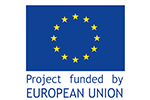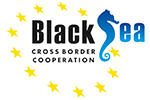IASON ( Invasive Alien Species Observatory and Network Development for the Assessment of Climate Change Impacts in Black Sea Deltaic Protected Areas) project unites the efforts of 6 Project Partners from 5 Black Sea countries (Romania, Ukraine, Greece, Turkey and Georgia) in a multisectoral & multidisciplinary project-consortium.
Under a global changing environment, the Black Sea is found in between the European and Asian crossroad and in the transition between the Mediterranean and North. A great number of stakeholders have developed economic activities around the Black Sea coastline, especially at the deltas, which are known for their density in population and growth potential (such as fishing, fisheries and aquacultures, tourism and recreation, farming etc). Historically, the Black Sea is under the invasion of alien species from the Indian Ocean and Mediterranean Sea due to various reasons such as shipping and global warming and at present, mediterraneanisation of the Black Sea is being discussed widely in the scientific community due to climate change. Invasive Alien Species (IAS) is the central point on which this proposal makes focus, because if not sufficiently monitored and assessed they may alter dramatically not only the ecosystem balance but also a range of already well established socio-economic activities.

The overall objective of the project is to establish, perform and communicate joint monitoring actions on Invasive Alien Species (IAS) in Black Sea deltaic ecosystems and assess their response under current and predicted climatic conditions. The project will seek to contribute in promoting coordination of environmental protection in the Black Sea region and in particular through improving the process of joint environmental monitoring (Priority 2.1).
Specific objectives:
- To develop and implement joint monitoring and risk assessment procedures on IAS in the project’s nature protected areas and motivate and assist countries in creating their IAS inventories:
The project will pursue to develop joint monitoring and risk assessment procedures on IAS in the delta ecosystems of the project area so as to create both common data inventories and assessment results as well as the research capacity at a cross border level. - To improve long-term cross-border collaboration, information and research capacity through using innovative technologies on IAS monitoring:
The project will add in building cross-border collaboration, information and research capacity through using innovative technologies on IAS monitoring. ICT tool development will be pursued in order to provide management, access and use of the acquired information and project results - To improve cooperation on IAS monitoring through the involvement of the public at vari-ous levels of the project:
The project will seek to foster cross-border collaboration and exchange of information towards addressing current and future IAS threats. The encouragement of various stakeholders at all levels will be pursued so as to put forward a process of co-creation and use of the monitoring data as well as their common utilization


